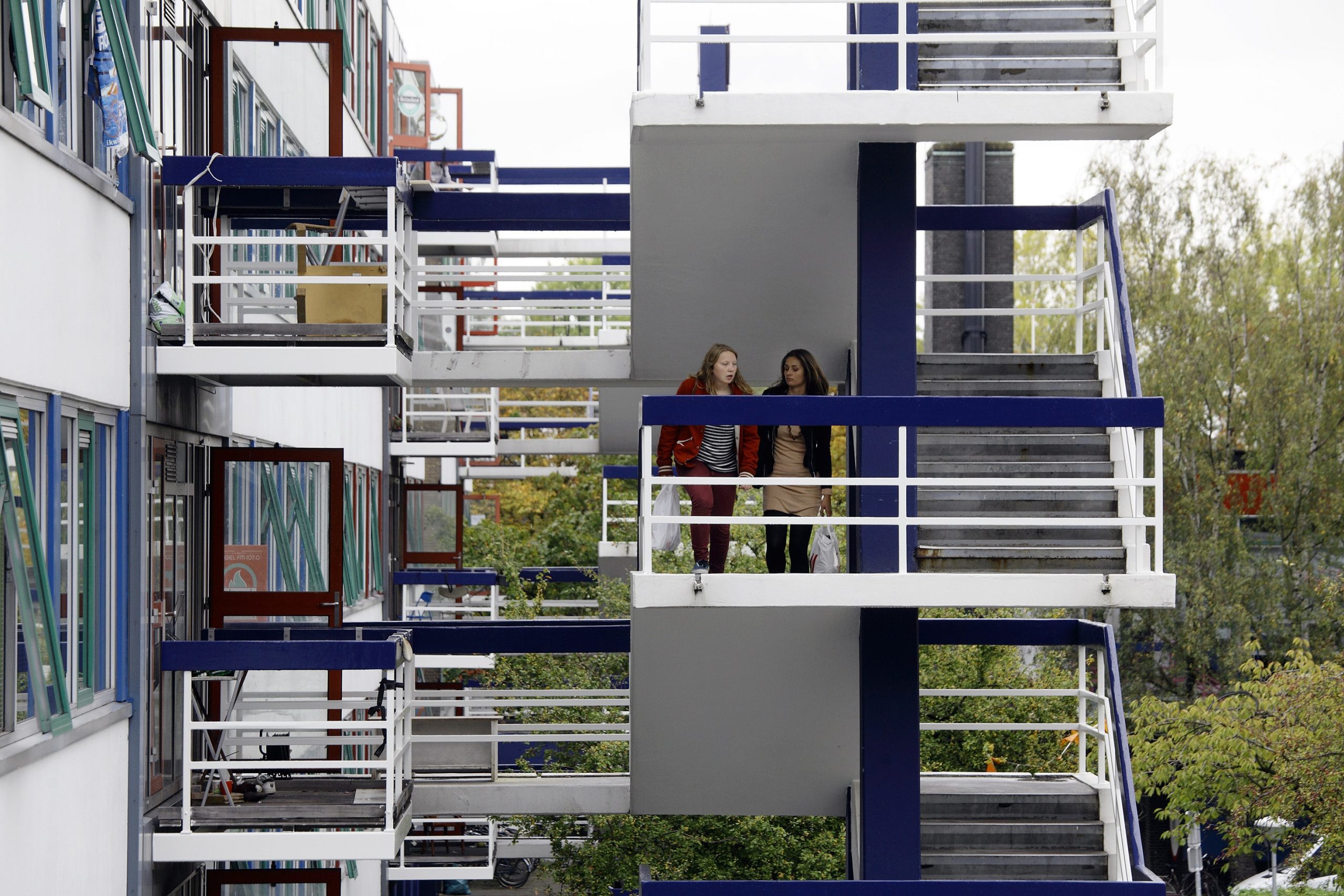Housing is a major concern for international students, not only in Delft, but also in many other cities in the Netherlands.
Issues regarding the lack of student accommodations and the high cost of rent are due in part to the limited amount of residential space in these densely populated areas.
While PhD candidates at TU Delft share similar grievances with the rest of the international student community, they are faced with unique challenges in respect to their housing situation.
Since PhD candidates reside in Delft for an extended period of time, they are typically in need of long-term accommodations. As employees of the university, these students receive a monthly salary, which should be sufficient to cover their living expenses. Still, many PhD candidates depend on research grants or external funding and rely on a much smaller stipend. Like most international students living in Delft, they are confronted with high rental prices, particularly in the private housing market. Even with a monthly salary, housing options for PhD candidates are still very limited.
In order to ensure that international students find suitable accommodations, TU Delft has developed a system of guaranteed housing in cooperation with student housing organization DUWO. Each year, 150 units are guaranteed to PhD candidates for a 1-year period. Moreover, an additional 80 units are reserved for long-stay tenants.
“We want to guarantee housing for PhD candidates in the first year because of the [housing] shortage in Holland,” says DUWO Accommodate Director Gijsbert Mul. “Until a short period ago, it seems that PhD’s could more easily find accommodations because they have a salary and can afford higher rent. Only in the last five years has long-term housing become a problem, so we are building more housing facilities in consultation with the TU and depending on the need.”
Ordinarily, PhD candidates pay roughly €500 to €800 per month for their guaranteed housing, €200 more than the average DUWO accommodation. These units are fully furnished, with added costs such as utilities and municipality taxes included in the rent.
According to Mul, if, during their stay, children move in or a baby is born, most tenants search for more appropriate housing themselves. “It is difficult when [PhD candidates] come with an entire family,” says TU Delft International Housing Coordinator Alexander van der Wel.
“We don’t have [family housing] with DUWO because it’s not their core business as a student housing organization. This falls more under the regular housing market. It also has to do with the price and the regulations that we have to obey.” Although the International Office is more than willing to contact real estate agents on behalf of PhD students, Van der Wel claims that a family apartment in Delft for €700 a month is a needle in a haystack. “Sometimes we are quite lucky and we find something, but it’s not something we can guarantee that we can provide.”
Indeed, searching for housing on the private market poses its own set of challenges. A number of landlords and rental agencies in Delft refuse to rent out properties to students, even if they are completing their PhDs. In some cases, electricity, gas, water and Internet connection are excluded in the rent, meaning tenants must arrange for these utilities themselves. Furthermore, most agencies charge a month’s rent for their services, while landlords require an additional month’s rent as a security deposit. In the end, these expenses can add up to an enormous amount, that is, if they can find a room or an apartment at all.
Old and expensive
“Housing options are very limited in Delft,” says TPM PhD candidate Joolie Kasmire. “If you live in the city centre, you have to pay a lot of money for an old, inefficient, probably illegal, tiny flat with no garden or natural space. The whole city is working hard to maintain its traditional building style and charm. Unfortunately, this preoccupation with image means that very few new or affordable homes are built in the city and that old homes are not upgraded with modern features.” That being said, the Delft Municipality is currently working with real estate developers and housing organizations to improve the situation.
Rotterdam-based company West Yellowstone is planning to build housing accommodations for PhD candidates and young professionals in Delft by early 2015. The goal is to provide interim housing solutions for this particular group as they progress towards the next phase of their lives. Located at the Spoorzone, the housing complex will offer 150 to 200 studio apartments ranging from 30 to 36m2. 45m2 units may also be made available for couples. Ideally, the average rent for these non-furnished units will cost €650 per month, including utilities. However, the project needs to generate enough interest from its target audience before construction can commence.
Overall, the city’s general lack of space puts a strain on new student housing initiatives. Although the Municipality has approved the site of the proposed West Yellowstone housing complex, the project has been authorized for a period of five to ten years. Consequently, the company plans to construct modular housing units, which will relieve the pressure on the housing market only temporarily. As the TU Delft student population increases every year, the development of more permanent student housing accommodations is of paramount importance. Given the critical issues regarding space, and amount of time and investment necessary to realise such developments, providing these new accommodations is easier said than done.



Comments are closed.